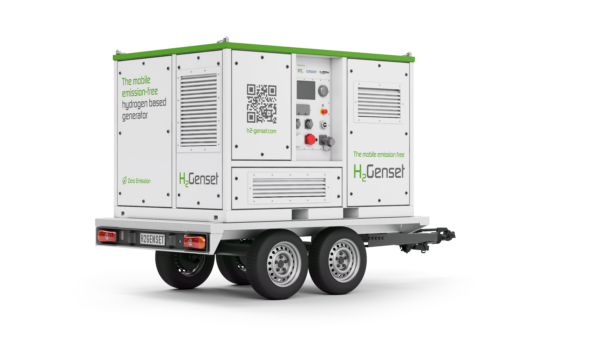
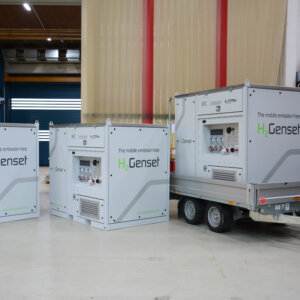
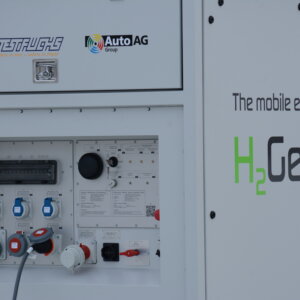
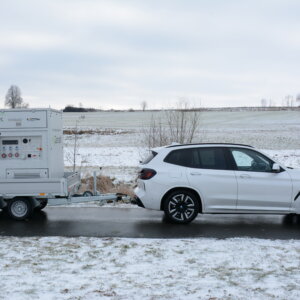
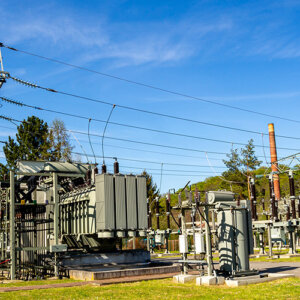

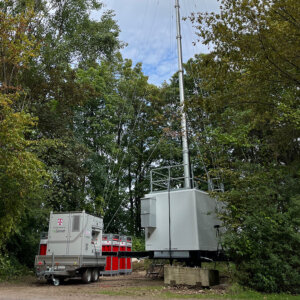
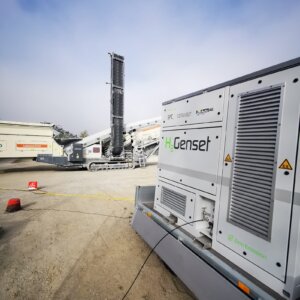
The H₂Genset is a flexible and mobile generator using hydrogen for use in areas without access to the conventional power grid, e.g. on construction sites, at outdoor events, for the temporary power supply of telecommunication masts or as a mobile emergency power supply in the event of catastrophes. Optionally, it can also be configured for use as a mobile emergency power generator without the need for foundations or planning permission.
With a peak output of 28 kW, the H₂Genset can be used in many applications such as:
Hydrogen fuel cells are a climate-neutral, quiet and highly efficient alternative option for covering increased electricity demands and guaranteeing a (back-up) power supply without the need for diesel-powered solutions. The H₂Genset’s uses are not limited to its standard role as a reliable emergency power generator. It can also secure the power supply in areas without access to the conventional power grid. The H₂ generator is an advanced, climate-neutral, and incredibly flexible power supply system.
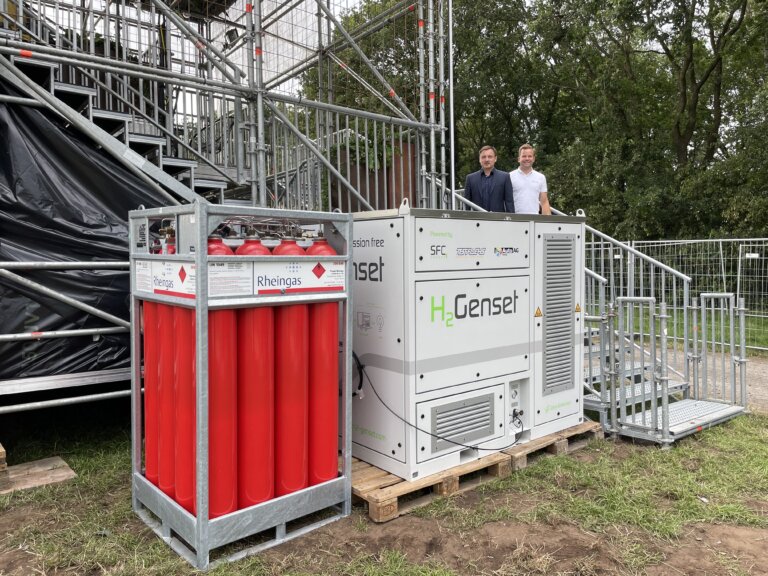
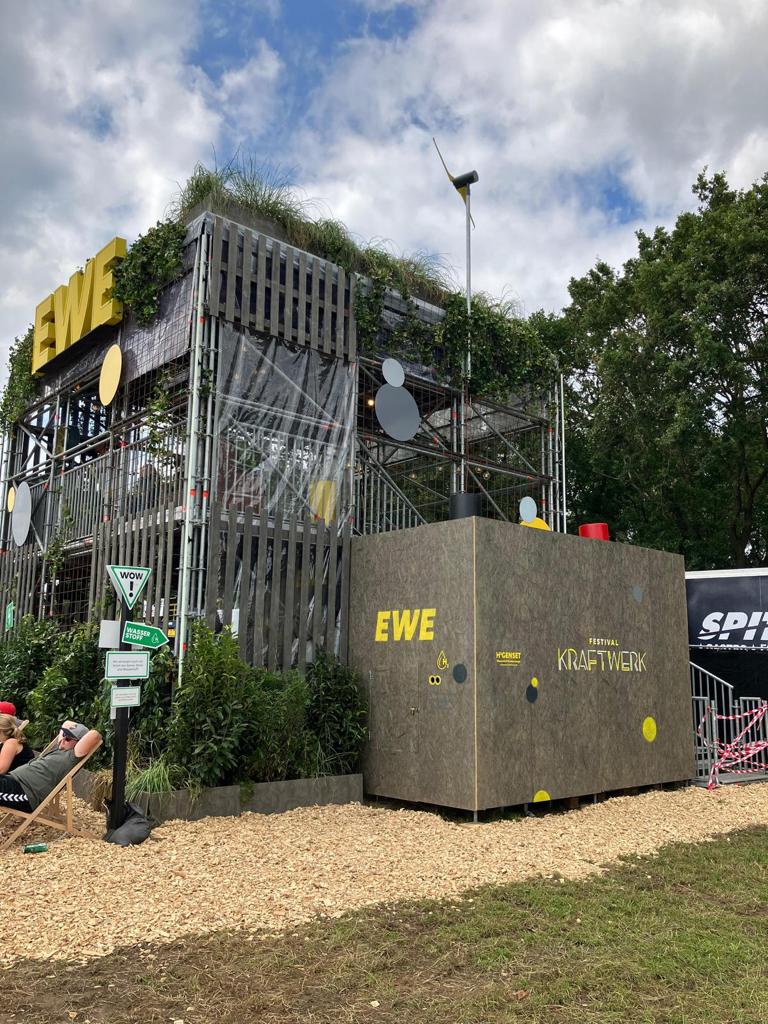
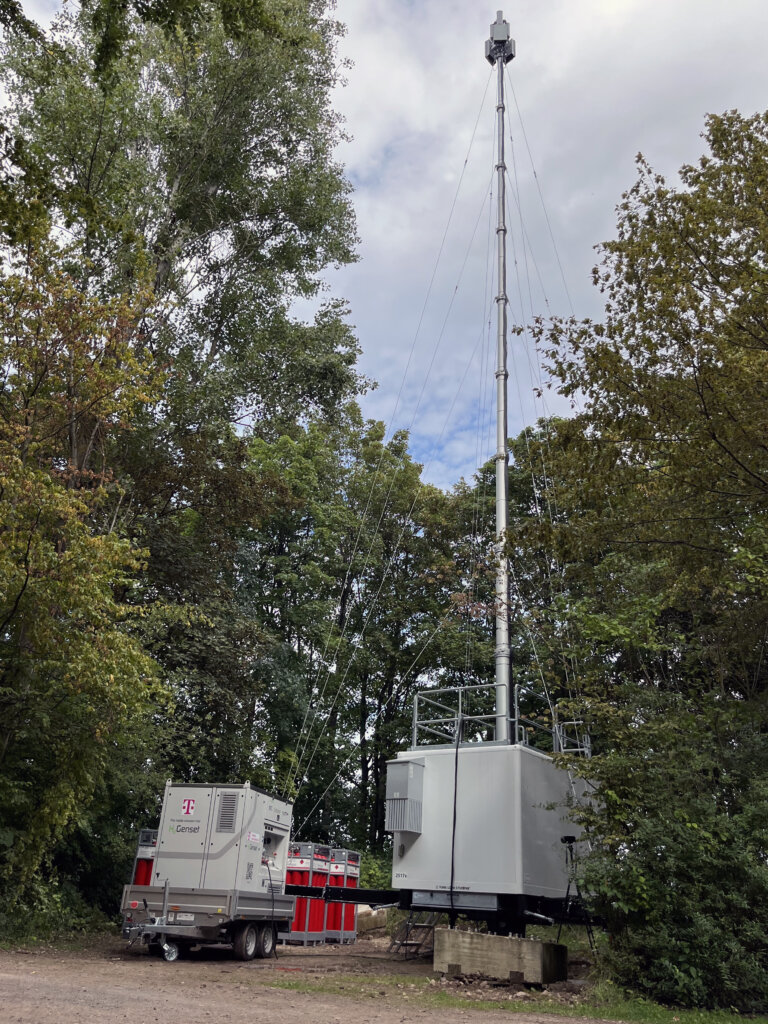

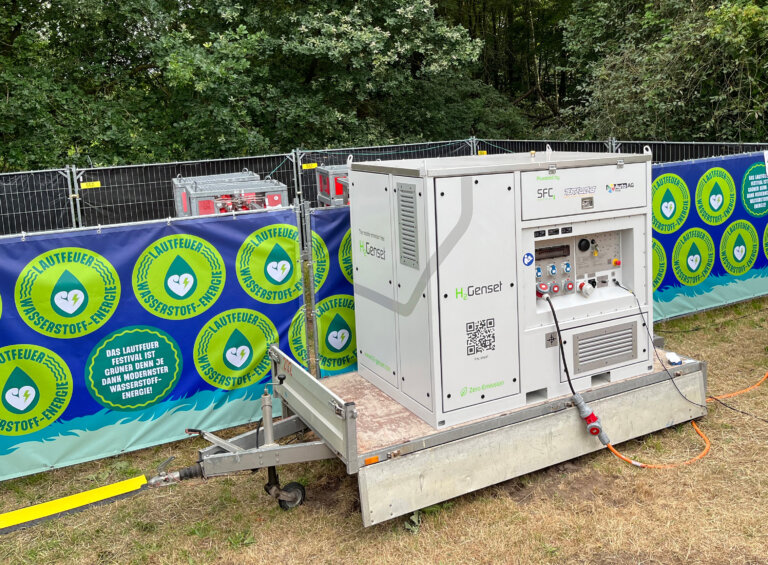


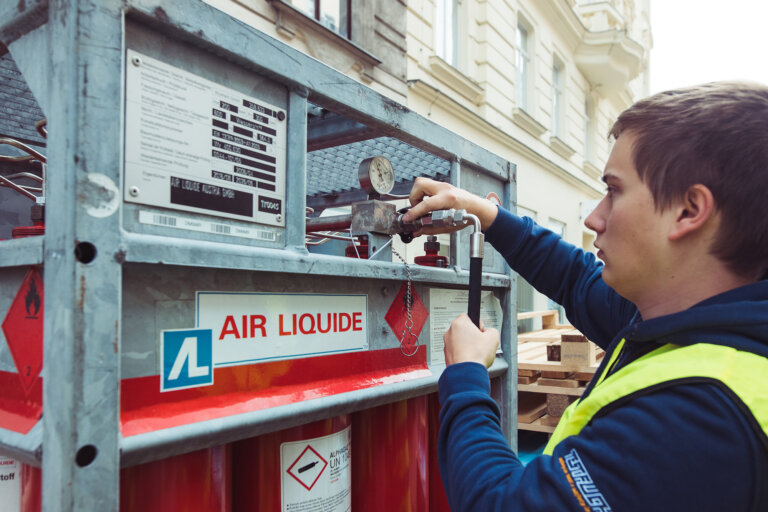

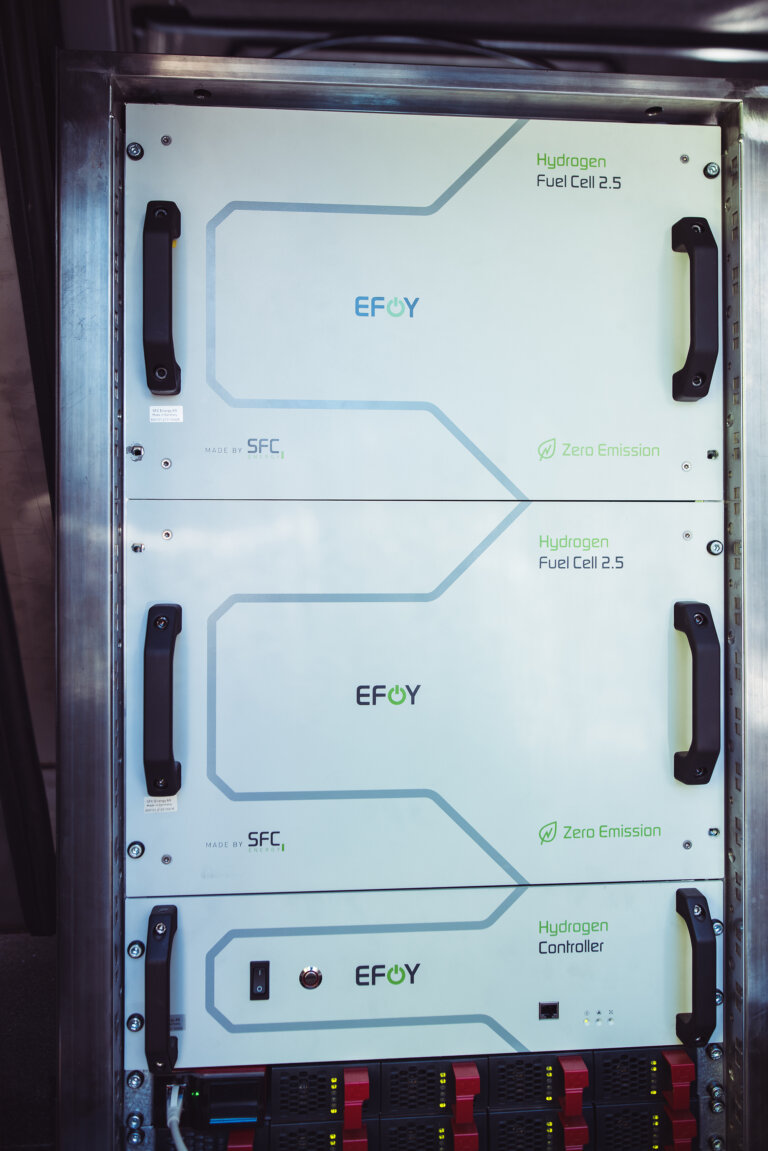
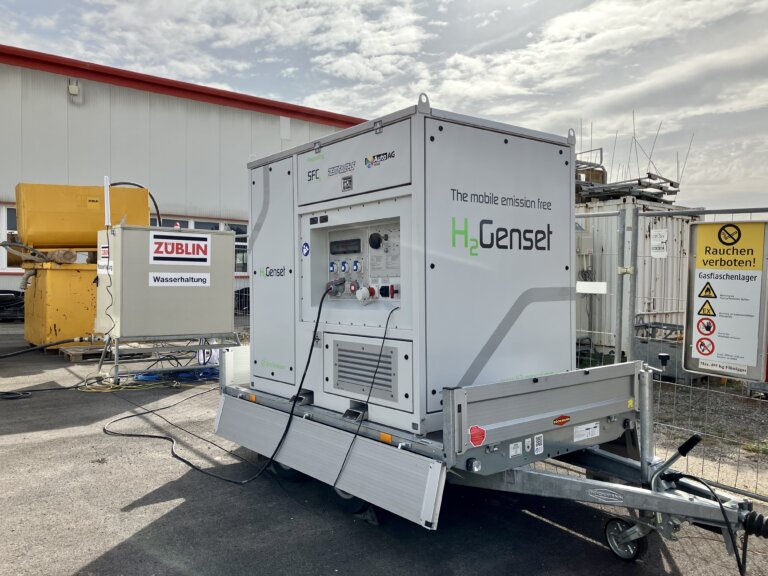

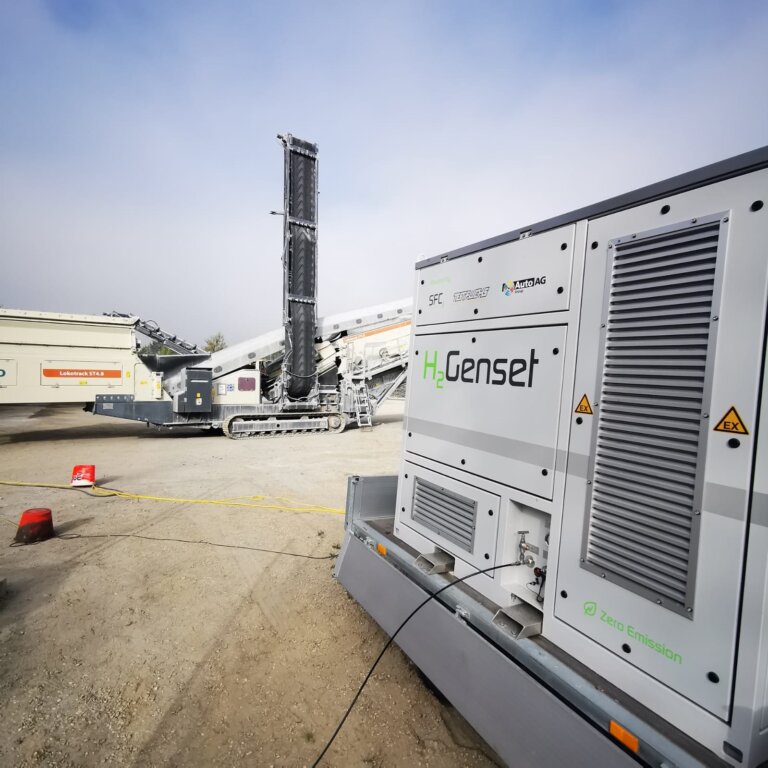
Benefits of the H₂Genset
The EFOY Hydrogen Fuel Cell modules integrated in the H₂Genset are based on proven PEM (polymer electrolyte membrane) technology. The fuel cells produce electricity from hydrogen, supplemented by oxygen from the air. They convert hydrogen directly into electricity and the only waste product produced is water vapor. This is exceptionally environmentally friendly.


Cooperation partner: Deutsche Telekom
At the Nibirii electronic music festival in Düren, Germany, the H₂Genset supplied the Deutsche Telekom mobile cell phone tower with 100% green electricity from hydrogen on an on-demand basis and served to safeguard the mobile communication of around 30,000 visitors.

Cooperation partner: LAUTFEUER Festival
The H₂Genset supplied the stage, lighting and beverage cooling for the LAUTFEUER Festival after-show party. The battery bank, which was constantly recharged by H₂Genset, served as additional power storage for peak loads.

Cooperation partner: EWE, JOKE
At the Deichbrand Festival, we took a big step towards sustainability together with the energy provider EWE AG. The H₂Genset backed the photovoltaic installation in times with low power output and ensured an uninterrupted power supply.
Thanks to the modular design with integrated EFOY Hydrogen Fuel Cells, the performance range can be precisely tailored to suit your requirements. The H₂Genset has an integrated hydrogen tank system and uses proven fuel cell technology to provide energy cleanly and quietly. It also needs little maintenance and is cheap to run.
The H₂Genset can be refueled quickly and easily at H₂ filling stations. For even greater self-sufficiency, the H₂Genset also has a connection for an external tank, e.g. a standard 12-cylinder gas cylinder bundle.
Monitor individual generators or entire fleets conveniently and easily using a suitable IoT solution. The H₂Genset has an integrated cloud connection and can therefore be monitored using the associated web app. Your dashboard shows device data, such as the fill level or the location displayed on a map. The cloud platform also provides extensive functions, such as usage analyses, early fault detection, automated cost calculations for rental equipment, and the integration of geofences into fleet management systems.
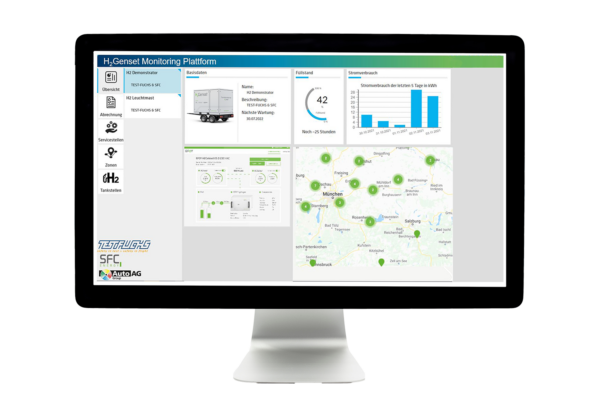
The world’s first mobile and emission-free H₂ generator in its power class was jointly developed by SFC Energy AG from Germany, TEST-FUCHS from Austria and Auto AG Group from Switzerland.

Leading truck service company for green drive concepts. Development and approval of truck and trailer bodies.
Core competence:
Servicing and maintaining H₂ vehicles, road transport and vehicle construction

Leading special systems manufacturer for the aerospace industry. 30 years of experience in hydrogen valve technology.
Core competence:
Special systems, instrumentation and control technology, hydrogen, IoT

Leading manufacturer of stationary and mobile hybrid power supply solutions.
Core competence:
Methanol and hydrogen fuel cells
*For example, a 5 kW hydrogen fuel cell energy solution uses 45.6 tonnes less CO2 than a conventional diesel generator at an assumed annual demand of 43,800 kilowatt hours (kWh). This corresponds to driving a diesel-powered passenger car around 250,000 kilometers.
** Currently being processed